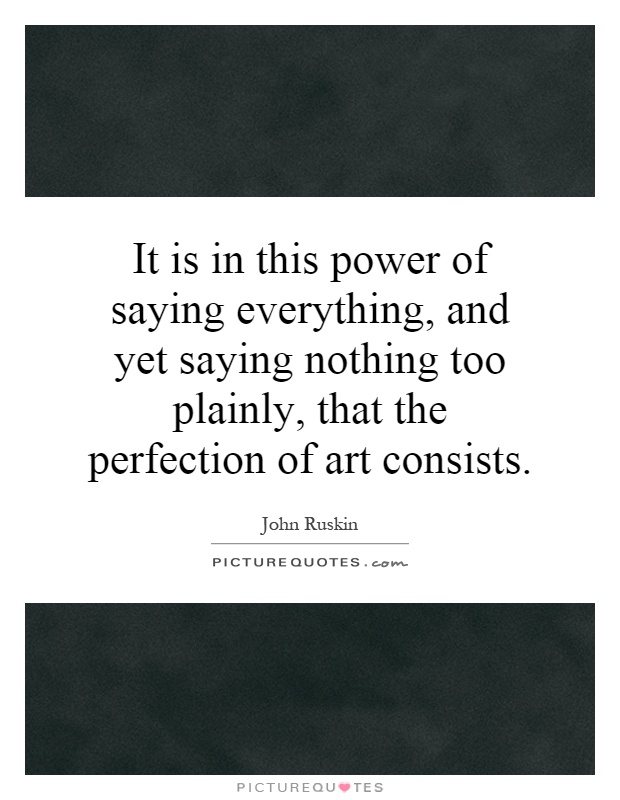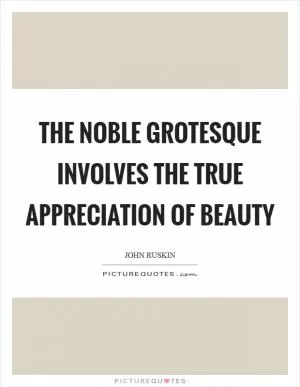It is in this power of saying everything, and yet saying nothing too plainly, that the perfection of art consists

It is in this power of saying everything, and yet saying nothing too plainly, that the perfection of art consists
John Ruskin, a prominent art critic and social thinker of the 19th century, believed that the true essence of art lies in its ability to convey complex ideas and emotions without explicitly stating them. In his view, the perfection of art is achieved when an artist can say everything and yet say nothing too plainly. This concept speaks to the idea that art should be open to interpretation and allow the viewer to engage with the work on a deeper level.Ruskin's belief in the power of ambiguity and subtlety in art can be seen in his own writings and critiques. He often praised artists who were able to convey profound truths through their work without resorting to explicit statements or overt symbolism. For Ruskin, art was a means of expressing the ineffable and the sublime, tapping into the universal human experience in a way that transcends language and logic.
One of the key aspects of Ruskin's philosophy of art is the idea that true beauty lies in the ability to evoke emotion and provoke thought in the viewer. By leaving certain aspects of a work open to interpretation, an artist can create a sense of mystery and intrigue that draws the viewer in and encourages them to engage with the work on a deeper level. This approach allows for a more personal and subjective experience of art, as each viewer brings their own unique perspective and understanding to the work.
Ruskin's emphasis on the power of suggestion and subtlety in art can be seen as a rejection of the more didactic and overtly political forms of art that were popular in his time. Instead of using art as a tool for propaganda or social commentary, Ruskin believed that art should strive to capture the essence of the human experience in all its complexity and nuance. By allowing for multiple interpretations and layers of meaning, art has the power to transcend the limitations of language and communicate on a deeper, more profound level.












 Friendship Quotes
Friendship Quotes Love Quotes
Love Quotes Life Quotes
Life Quotes Funny Quotes
Funny Quotes Motivational Quotes
Motivational Quotes Inspirational Quotes
Inspirational Quotes